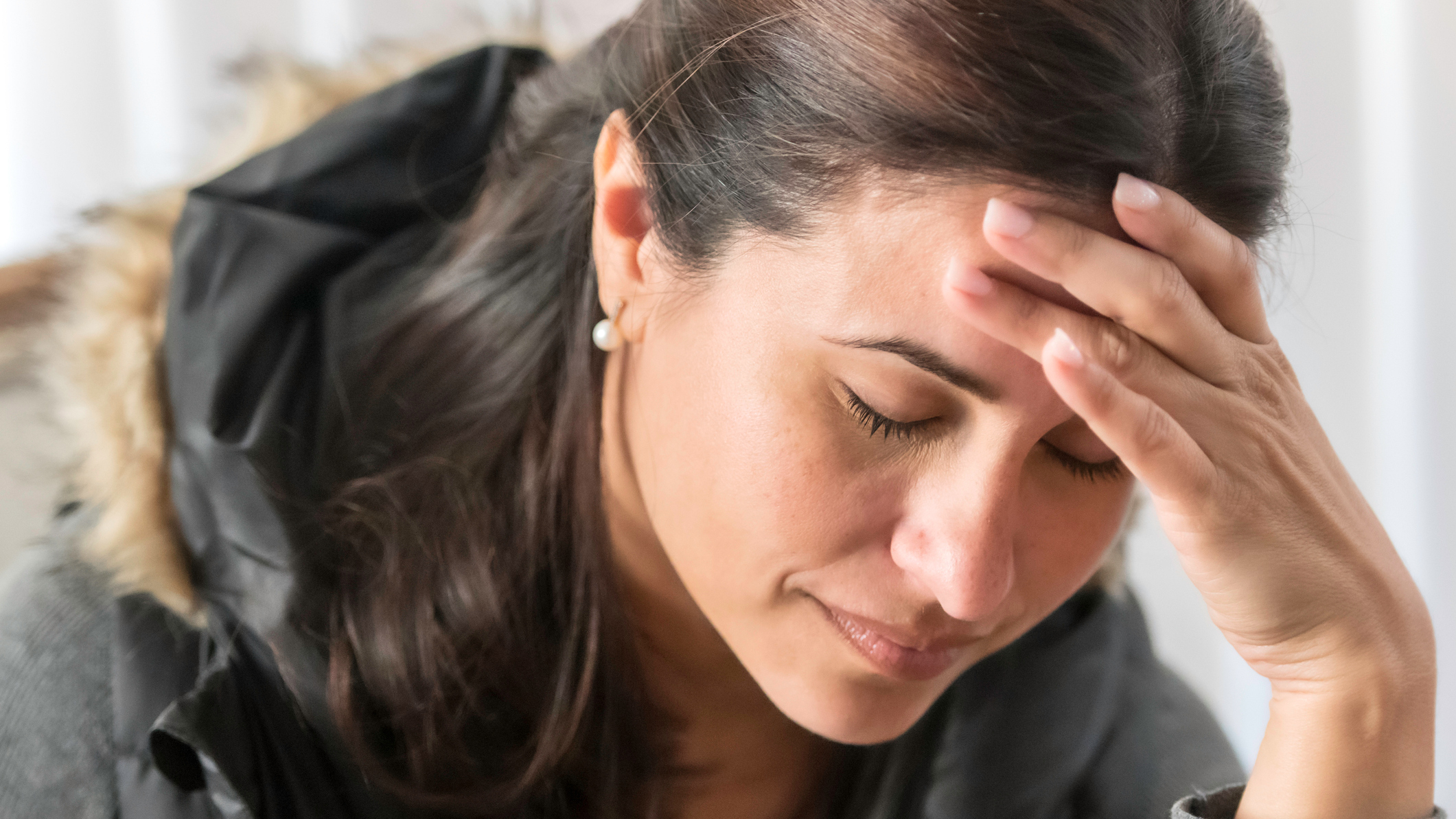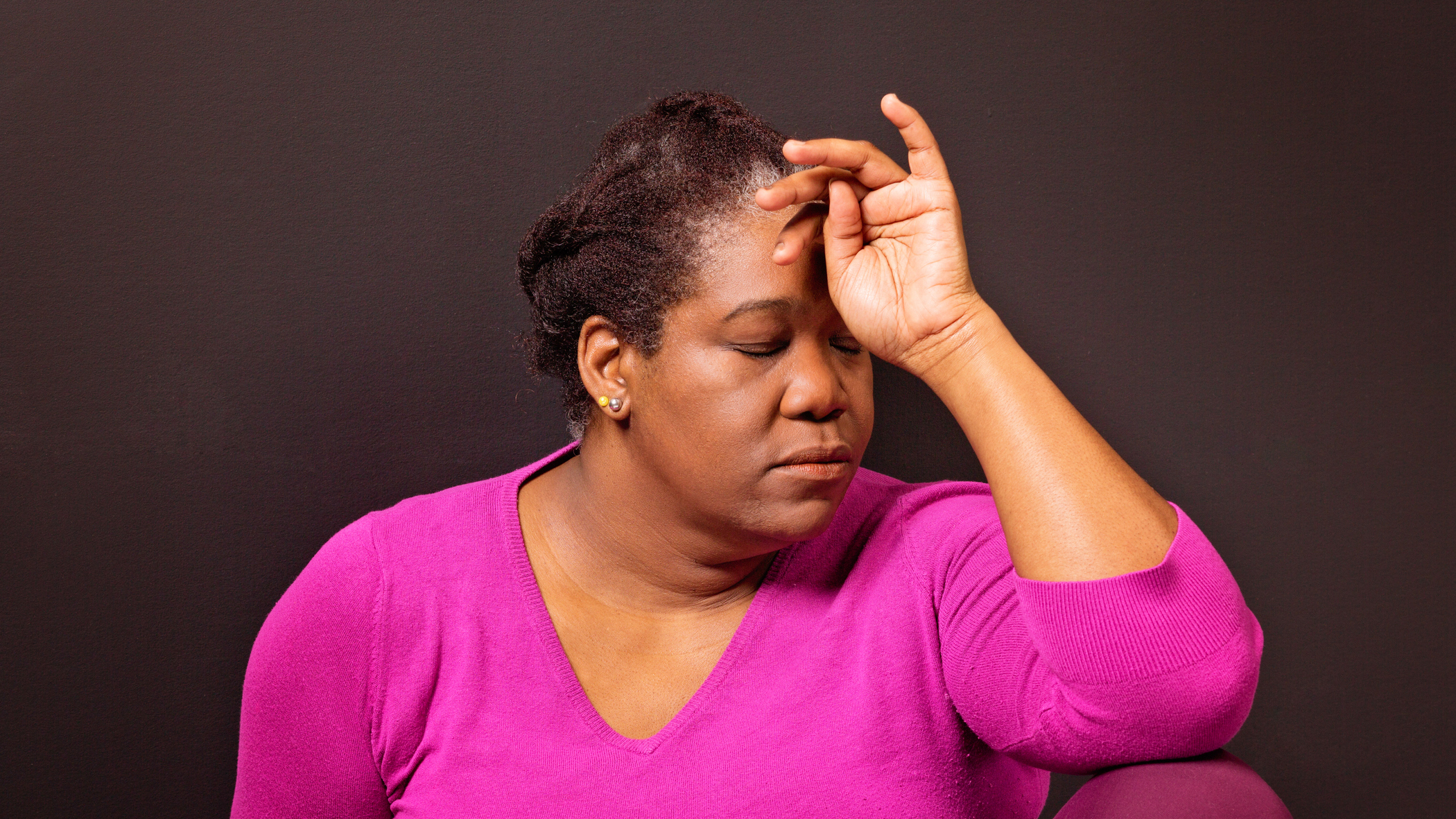Menopause: Why some women experience symptoms differently to others
Doing research on your menopause symptoms can be vital, as not all women's experiences will be identical


Start your week with achievable workout ideas, health tips and wellbeing advice in your inbox.
You are now subscribed
Your newsletter sign-up was successful
Lockdown has led to many women going through menopause without the usual network of support. Menopause can be a difficult time in the life of women: according to one study, published by Pfizer researchers in the Journal of Women's Health, menopause coincides with (or causes) "significantly higher work impairment, and healthcare utilization than women without menopausal symptoms.
"Depression, anxiety, and joint stiffness were symptoms with the strongest associations with health outcomes." Some women find this period of their life very easy to get through, and it's over and done with in a matter of a few months. Others, on the other hand, experience symptoms for years before the menopause actually occurs, during a time technically known as perimenopause.
If you're worried about the menopause, there are a few things you can do: the best menopause supplements can help, while the best vitamins for women over 50 can keep your general health topped up during this difficult time.
There's no doubt it can be hard not just for health reasons, but for economic reasons too, as some women need to seek medical treatment or find themselves unable to work. However, there's even more difference in menopauses which we don't often hear about, as ethnicity and race can also impact its effects on women.

Dr Nighat Arif, a GP with Specialist Interest in Women’s Health, said: “The menopause is still in some cases, poorly understood or shrugged off, especially in ethnic minority groups. There is little research dedicated to the experience of the menopause in ethnic minority communities and because of this, the menopause is perceived as ‘white, middle-class problem’ among this community of women."
Karen Arthur, who hosts the "Menopause While Black" podcast, said: "The menopause movement needs to open up. It isn’t a polar nor divisive landscape, it shouldn’t be viewed as the black vs white experience, we just need more black women in the limelight talking about it.
“Even now, the landscape remains predominantly white, and middle class. We have to be able to see ourselves, to feel heard. Beyond optics, I want to see more research into black and ethnic minority experiences of the menopause. I want people to ask questions and keep asking. If we diversify the landscape, everybody wins.”
Start your week with achievable workout ideas, health tips and wellbeing advice in your inbox.
The Study of Women's Health Across the Nation found black and latina women reach menopause at 49, two years earlier than the average age. There are also differences in the way women experience hot flashes: white women are said to experience hot flashes for around six to seven years, up to three years less than black and latina women. A study from the American Journal of Medicine found American Idian women could experience hot flashes for even longer.
Matt Evans is an experienced health and fitness journalist and is currently Fitness and Wellbeing Editor at TechRadar, covering all things exercise and nutrition on Fit&Well's tech-focused sister site. Matt originally discovered exercise through martial arts: he holds a black belt in Karate and remains a keen runner, gym-goer, and infrequent yogi. His top fitness tip? Stretch.
